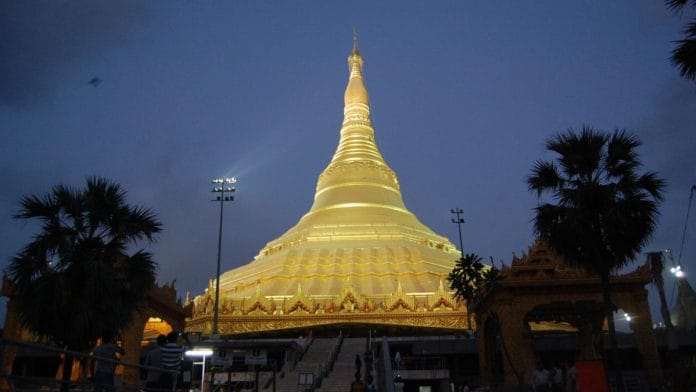Thank you dear subscribers, we are overwhelmed with your response.
Your Turn is a unique section from ThePrint featuring points of view from its subscribers. If you are a subscriber, have a point of view, please send it to us. If not, do subscribe here: https://theprint.in/subscribe/
unfortunately, I clicked on the link as I was excited to see Vipassana mentioned in whatever context in an article written by Mr. Dilip Mandal. I say ”unfortunately” because I opened the link with huge expectations of stimulating my intellectual spirits and engaging in some deep, insightful, and spiritual debate like the old Buddhist Sanghas. However, I was utterly disappointed with what I got from it.
The tone of Mr. Mandal’s entire article was that of a schoolboy complaining about physical education or a mathematics class that he chose to skip later. I will continue with this metaphor to be as polite and respectful as I can. I played a lot of sports during my school days, arriving at school 2 hours before everybody and leaving 2 hours later. I never complained because I was not forced to; I volunteered. The fruits of this discipline and the things that I learned on the field continue to help me in various facets of my life.
There was one place where I didn’t volunteer but was forced to attend: the classroom. Yet, I attended and got a decent education from a good enough university, the fruits of which I enjoy every day. Vipassana, for me, was a school where I learned so much about my inner self. I am not even a dedicated follower, but I understand and respect the entire system and what they are trying to do. It is one of the highest forms of social service, as people learn how to deal with what’s inside them. It is like therapy for
the self, by the self.
Mr. Mandal’s grievances felt like a school kid who doesn’t want to go through the drill, starts complaining about the shoes he has got, or the breakfast he skipped, or believes he can directly sit in
the 10th grade without going through nursery and primary school. Spirituality, like any other aspect of life, demands effort and willpower. It is this complacency and an inflated sense of entitlement that hinders our growth and blocks our potential to learn. The importance of being open-minded is the foundation for learning new things and embracing new ideas.
Vipassana is an ancient knowledge system of meditation, mindfulness, and awareness of the inner self. It was revived by Buddha and popularized to an extent that it has become synonymous with Buddha or Buddhism. However, had Mr. Mandal been more attentive to those discourses, he could have gotten answers to his concerns from SN Goenka himself (Videos are available on Youtube). He clearly explains the need for simple food, the necessity of arya maun or noble silence, the rationale behind no gyms, or
why running is not allowed.
However, he aptly points out his concerns about the recorded lectures. Those who have experienced Vipassana firsthand are aware of SN Goenka’s consistent emphasis on the tendency of gullible interpretations and the passage of time to erode the original essence of various religious messages. Through illustrative examples drawn from major religions, he underscores how vested interests have historically distorted their core tenets. This is a phenomenon that Vipassana itself and Buddhism have
not been immune to, as he judiciously points out. His efforts in the later years of his life were to document this so that the practice stays true to what his guru Sayagyi U Ba Khin had taught him. He explains how some schools and monks in Myanmar had protected Vipassana in its traditional form. In my opinion, this is one of the most ingenious uses of technology and fusion of spirituality and science, aiding the former in whatever sense it could.
What prompted me to respond was his objection to not having any statue of Buddha. This made it clear to me how little his understanding is of Buddhism or Buddha. The oldest school of Buddhism worships Buddha in the form of symbols and not idols. Adding to that, I think he had mistaken the Vipassana center for a Buddhist temple. There is great reverence for Buddha, and in his respect, all Vipassana centers do have a Bodhgaya tree planted. However, it is not a temple, stupa, or monastery in the
traditional sense.
Unfortunately, his lack of attentive consideration or his reliance on his preconceived notions is evident. I believe it was lazy on his part not to have attended a 10-day course and still choose to write about it. It
is always convenient to say, ”I align with this Buddhism or that Buddhism.” This is what I do with my parents when they force me to go to temples or observe a fast. I am spiritually and religiously lazy, but definitely not intellectually. This self-awareness is what I gained from Vipassana.
These pieces are being published as they have been received – they have not been edited/fact-checked by ThePrint.


